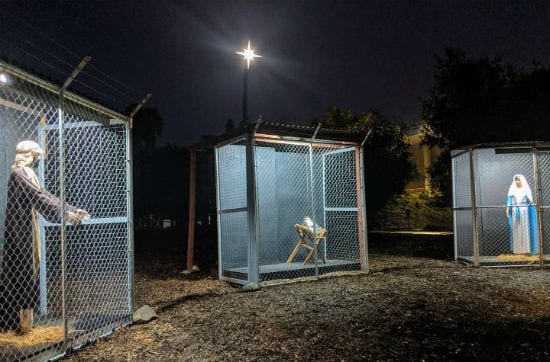• So, OK, tried to pre-schedule a few posts ahead of a hectic and daunting Big Box weekend and I goofed up on tomorrow’s, making it today’s. Those worried that this blog is turning into nothing but re-runs can be reassured that it also now includes Sneak Previews of future re-runs. Oops.
• Before diving in on the ways that Grove City College trustees have disgraced and beclowned themselves by embracing anti-anti-racism, here’s a bit of background on another white evangelical college:
Nothing to see here, just a bunch of white evangelical college students hog-tying and assaulting a Black classmate because his parents refused to sign the school-mandated form banning interracial dating. But, you know, that was the 1980s — ancient history.
• “She swallowed the bird to catch the spider, she swallowed the spider to catch the fly …”
Suddenly the Mets fans made sense to me. What we were witnessing was precisely the opposite of the kind of rooting that goes on across the river. This was the losing cheer, the gallant yell for a good try — antimatter to the sounds of Yankee Stadium. This was a new recognition that perfection is admirable but a trifle inhuman, and that a stumbling kind of semi-success can be much more warming. Most of all, perhaps, these exultant yells for the Mets were also yells for ourselves, and came from a wry, half-understood recognition that there is more Met than Yankee in every one of us. I knew for whom that foghorn blew; it blew for me.
• This Daily Kos post by Benthovens5th discusses one of the most pertinent biblical passages for our curdled, crabs-in-a-bucket national discussion of odious debt: “Student Loan Forgiveness vs the Parable of the Vineyard.”
I’d add Luke 4:29, “They got up, drove him out of the town, and took him to the brow of the hill on which the town was built, in order to throw him off the cliff.”
This is a recurring theme throughout the Bible: 1) Any talk of Jubilee will make Some People very angry; 2) Those people are the Bad Guys.
• Shelby Alito’s sloppy draft of the precedent-destroying decision criminalizing abortion was most probably leaked ahead of time by Alito himself. But the second likeliest candidate for the leak is Ginni Thomas.
• This Smithsonian piece by Diane Bernard is interesting: “How a Failed Assassination Attempt Pushed George Wallace to Reconsider His Segregationist Views.”
I mean, personally, I attempt and advocate a host of rational, spiritual, and social approaches that I hope will nudge my white-/Christian- nationalist neighbors to reconsider their segregationist views. And I’m certain it’s best to stick to such nonviolent approaches (for a host of reasons, including the practical/prudential reasons Niebuhr discusses here). So while I’m somewhat grateful to the Smithsonian for reminding us that other approaches are sometimes also effective, please don’t take that headline as advice.
• Before this month, I had never heard of the “Free Republic of Franklin,” but then this weird-but-true slice of history showed up twice in my RSS feed. The first was from Erik Loomis’ visit to the American grave of William Blount — a war profiteer during the Revolution who went on to a bunch of other grand schemes involving his personal enrichment at the expense of the newly independent country. The second was from Daniel Silliman’s look at “Why Tennessee Is Just Now Looking at Lifting a Ban on Clergy in the Legislature.”
Both pieces are a helpful tonic against claims that our contemporary political and religious divisions are “worse than they’ve ever been.” Loomis reminds us that Abigail Adams wanted William Blount executed by guillotine. Silliman recounts vicious intramural fights between very slightly different Calvinist perspectives that resulted in preachers being burned in effigy.
I’d say that makes the impeccably polite wine-and-cheese protests near Shelby Alito’s house seem quaintly civil by comparison, but frankly those protests were doing a fine job being quaintly civil on their own.
• “Why It Took Six Decades for James Hong to Get a Star on the Walk of Fame.”
James Hong is amazing. He’s a “working actor” who’s still working, now, at age 93 — still adding to his list of 440-and-counting acting credits on IMDB. You’ve seen him a whole lot in movies or on TV, or heard his voice in animated productions. And you’ve never seem him just coasting or phoning it in or settling for the two-dimensional stereotypes that were the only parts available to him for much of his long career.
• Like Chris Arnade, I’m a big fan of long walks, and there’s plenty of interesting or wise advice in his post, “How to Walk (12 miles a day).” But I’d also point out one more way to walk 12 miles a day: Get a job at the Big Box (and then leave early once you hit the 12-mile mark).
















